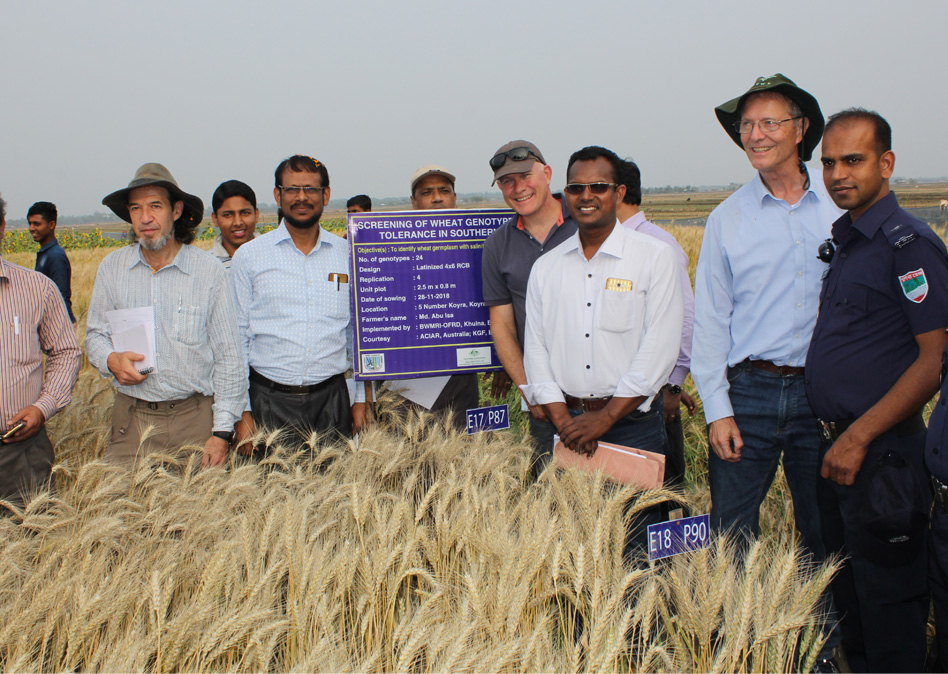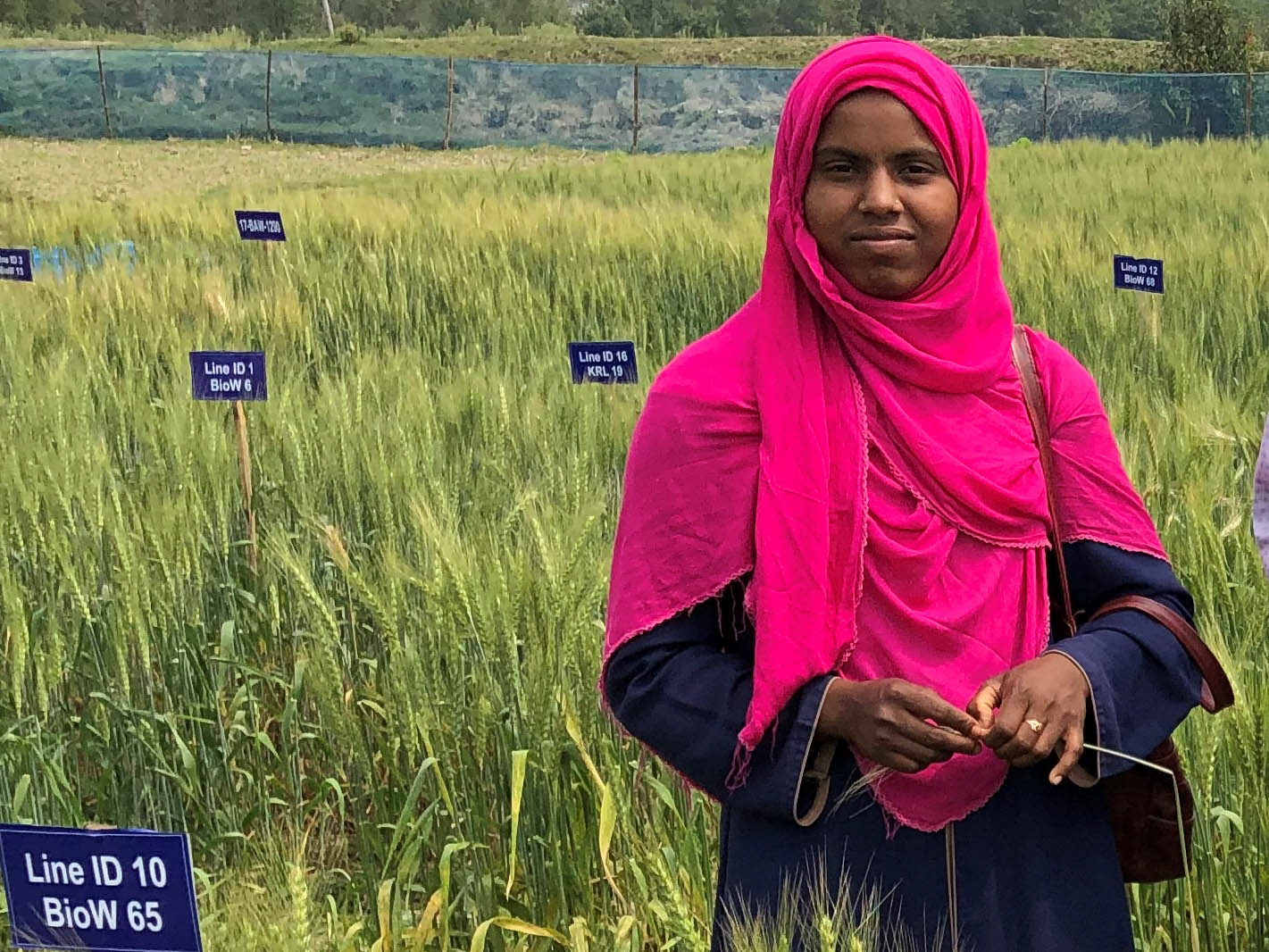Australian and Bangladeshi scientists are making progress towards introducing salt-tolerant wheat to help farmers in one of the world’s most climate-change vulnerable regions.
The work is part of an designed to increase the productivity of farms in Bangladesh’s coastal zone, which is prone to sea-water incursion and related soil salinity.
ACIAR , Dr Eric Huttner explains that, if successful, salt-tolerant crops could help smallholder farmers in the region-among the poorest in the world-improve their food security and household incomes.
‘In the southern region of Bangladesh, soil salinity increases during the year as the season progresses. The salt is then washed off by the monsoon,’ says Dr Huttner.
‘Salt-tolerant crops reduce the risk to farmers and extend the area which can be cropped in the dry season, without threatening the long-term sustainability of the cropping system, thanks to the monsoon wash off.’
Farmers in the region rely on growing rice in the wet season. But in the dry season, some fields lay fallow and unproductive because of the risk of growing crops in saline conditions.

Led by the University of Western Australia, the project covers both wheat and pulses as potential new crops for the region.
Based in Bangladesh, Dr M.G. Neogi is the Deputy Project Leader at the University of Western Australia.
‘To increase food security in Bangladesh, the coastal zone must become more productive,’ he says.
‘Rice alone cannot meet our needs. Wheat is a very good option because it is generally more salt-tolerant.
‘By identifying salt-tolerant strains of wheat, the unused land of this region can be cultivated which will greatly increase overall production of wheat in this region as well as for the nation.’
Dr Neogi and the team are now using the improved technologies developed by the project to plant demonstration blocks of wheat in the dry season on otherwise fallow land.
Dr Richard James, , is leading the wheat component of the project which has also provided equipment and training to support the Bangladeshi scientists.
‘Bangladesh imports wheat to meet local demand, so there is a real opportunity to introduce wheat production to these areas,’ says Dr James.
‘However, to be successful, the wheat varieties must be more salt-tolerant, which requires a targeted breeding approach to introduce salt tolerance traits into local varieties and comprehensive field testing.’

Through the project, the team in Bangladesh has developed its capacity to screen wheat varieties for salt tolerance and to evaluate the performance of wheat in saline conditions in field trials. Soils are highly variable, so this is a complex task.
Field trials of local Bangladeshi wheat varieties bred to include known salt-tolerant genes have now been established in districts across the southern coastal zone to test how they perform in farmers’ fields.
Dr James says it is far too early to draw any conclusions-because two or three years of data will be needed to demonstrate proof of concept-but the results so far were ‘encouraging’.
‘It’s promising when we have demonstration trials in districts with farmers looking hopeful and wanting to get involved,’ says Dr James.
The project, Incorporating salt-tolerant wheat and pulses into smallholder farming systems in southern Bangladesh, is funded through the ACIAR Crops Research Program.




